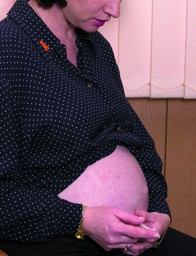Peer Reviewed
Feature Article Nutrition
Healthy eating for diabetes and pregnancy
Abstract
Women with gestational or type 2 diabetes have the same nutritional requirements during pregnancy as women without diabetes apart from a higher recommended level of folate supplementation. They should, however, pay particular attention to their carbohydrate intake to maintain optimal glycaemic control.
Key Points
- General healthy eating guidelines based on The Australian Guide to Healthy Eating apply for women with and without diabetes who are pregnant or planning to become pregnant. Women with diabetes should pay particular attention to optimal glycaemic control.
- Recommendations for preconception folic acid supplementation to prevent neural tube defects are higher for women with known diabetes than for those without diabetes (5 mg/day compared with 0.4 mg/day). The supplement should be continued for the first trimester.
- Dietary requirements for iron, iodine, essential fatty acids, folate and vitamins B6 and B12 increase during pregnancy for all women, and supplements may be required.
- Calcium and vitamin D dietary requirements do not increase in pregnancy. However, calcium supplements and vitamin D supplements may be required by some women.
- Pregnant women and those planning pregnancy should avoid drinking alcohol and eating foods at high risk of being contaminated with Listeria, and limit caffeine consumption.
- During lactation, requirements for energy and some nutrients increase further. For women on insulin therapy, breastfeeding can increase the risk of hypoglycaemic episodes.
Purchase the PDF version of this article
Already a subscriber? Login here.

